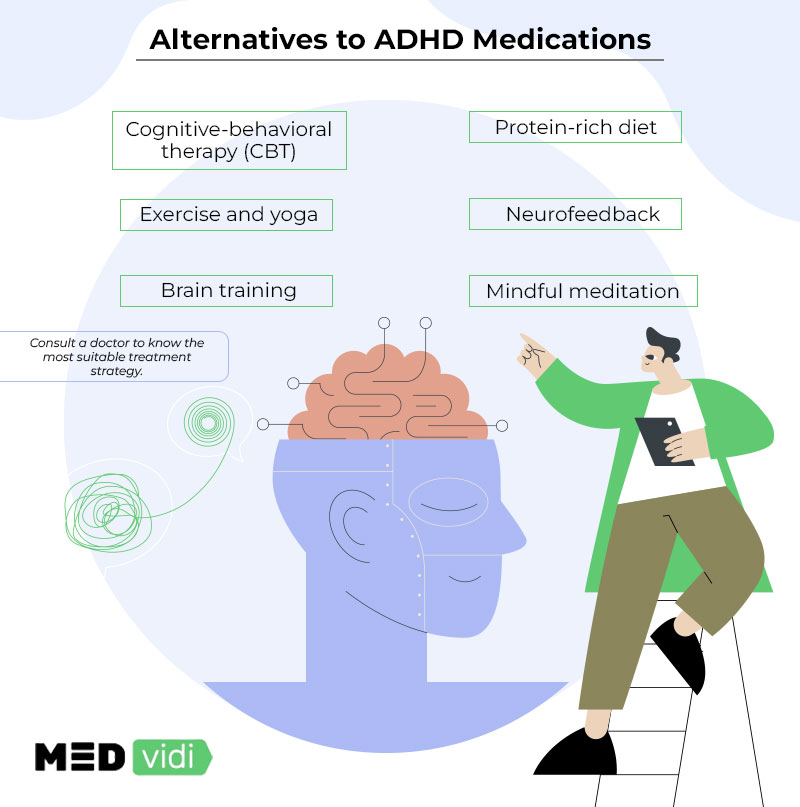ADHD Doctor Specialists to Help Navigate Symptoms
ADHD Doctor Specialists to Help Navigate Symptoms
Blog Article
Your Guide to Locating the Right ADHD Therapy for Enduring Results
Browsing the complexities of ADHD therapy calls for a nuanced understanding of both the problem and the myriad alternatives readily available for efficient administration. It is essential to identify that what works for one person might not always generate the same outcomes for one more.
Recognizing ADHD and Its Effect

In adults, ADHD can lead to difficulties in work environment environments, affecting performance, time administration, and interpersonal relationships. Frequently, undiagnosed or poorly managed ADHD can add to co-occurring psychological health and wellness concerns, such as anxiety and clinical depression, more making complex an individual's overall well-being.
The societal assumption of ADHD can vary, leading to preconception and misunderstanding, which may prevent individuals from seeking help. As awareness expands, it is important to foster an atmosphere that advertises understanding and assistance for those affected by ADHD, highlighting the demand for precise medical diagnosis and customized approaches to alleviate its effect on day-to-day life.
Summary of Therapy Choices
An extensive approach to treating ADHD includes a range of choices customized to the individual's unique requirements. These options can extensively be classified right into behavioral interventions, psychoeducation, and way of life alterations, alongside pharmacological therapies that may be checked out later.
Behavior interventions, such as cognitive-behavioral treatment (CBT), concentrate on modifying certain behaviors and establishing coping methods to handle signs and symptoms effectively. Psychoeducation plays a vital function in encouraging both people and their families by providing information regarding ADHD, its obstacles, and efficient methods for support.
Way of living adjustments can dramatically influence ADHD management. Regular exercise, a well balanced diet, and sufficient sleep contribute to overall wellness and symptom control. Mindfulness practices and leisure strategies can additionally improve emphasis and minimize impulsivity.
Support system and family treatment can cultivate a feeling of community and understanding, helping people feel much less isolated in their experiences. Each therapy alternative need to be considered in conjunction with the individual's preferences and conditions, guaranteeing an alternative strategy that promotes long-lasting success. Ultimately, the goal is to develop a personalized therapy strategy that addresses the certain challenges associated with ADHD while improving total lifestyle.
Medicine: Pros and Cons
Medication plays an essential role in the therapy of ADHD, with many choices offered that can significantly relieve signs for many people. Energizers, such as methylphenidate and amphetamines, are typically suggested and have actually shown efficiency in boosting emphasis, lowering impulsivity, and improving overall habits. These medicines function by enhancing dopamine and norepinephrine degrees in the mind, which are often dysregulated in those with ADHD.
Nevertheless, using drug is not without its obstacles. Some individuals may experience negative effects, including sleeping disorders, reduced hunger, or boosted anxiousness. Finding the ideal dosage can be an experimental process, calling for close surveillance by medical care professionals. Furthermore, not all clients respond to energizer medicines, leading some to explore non-stimulant options, which might have a delayed beginning of activity or various adverse effects.
It is necessary for individuals and their households to consider these pros and disadvantages thoroughly. Balancing the benefits of symptom management versus possible adverse effects is essential for accomplishing optimal therapy end results. Partnership with doctor can facilitate enlightened decisions, making certain that medicine becomes part of a thorough ADHD administration plan.
Behavior Modification Methods

One frequently employed method is Cognitive Behavior Therapy (CBT), which assists individuals recognize and change adverse thought patterns that add to ADHD-related challenges. Therapist for ADHD. With CBT, clients learn to set reasonable objectives, manage time properly, and establish organizational systems
Another efficient technique is Moms and dad Management Training (PMT), which informs moms and dads on just how to strengthen positive habits and minimize adverse ones via consistent discipline and communication techniques. This strategy cultivates an encouraging home setting that motivates behavior renovations.
Social skills training is additionally integral, helping people with ADHD navigate social interactions more effectively. Role-playing and modeling appropriate habits can boost social capability and reduce anxiety in social scenarios.
Lifestyle Modifications for Better Monitoring
How can way of living modifications substantially boost the management of ADHD symptoms? Implementing calculated lifestyle alterations can bring about considerable improvements in focus, organization, and emotional guideline for people with ADHD.
To start with, establishing a structured everyday regimen assists in developing predictability, which can minimize feelings of bewilder. Consistent schedules for meals, research, and sleep can improve everyday performance.
Integrating routine physical task is also essential, as exercise has been shown to enhance dopamine levels, boosting attention and motivation (Therapist for ADHD). Intending for at the very least half an hour of moderate workout most days can be advantageous
Nourishment plays a critical function. A well balanced diet regimen rich in omega-3 fats, whole grains, and protein can support cognitive feature. Limiting refined sugars and caffeine may minimize signs and symptoms, as these can lead to power crashes and impatience.
Verdict
In final thought, locating the best ADHD therapy necessitates a multifaceted approach that considers individual demands and preferences. Cooperation with medical care professionals and open interaction with assistance networks are important elements in browsing the intricacies of ADHD monitoring, eventually leading to lasting outcomes Medication Management and improved high quality of life.
Report this page